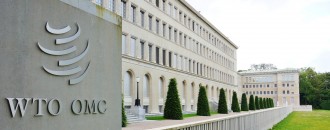
The Apple story: China's loss, India's gain?
Deepak Kumar
In November with Donald Trump getting elected as the President of US, Apple started rethinking its sourcing strategy. In his election campaigns Trump had promised his voters that he would bring back the jobs and manufacturing units that America had lost. He had been vocal about how US companies should be manufacturing in America. “We're going to get Apple to build their damn computers and things in this country instead of in other countries,” Trump had said during one of his speeches.
According to the latest reports, published in various global newspapers Apple has asked two of its iPhone manufacturers, Foxconn Technology Group and Pegatron, to shift its iPhone manufacturing units to the US. While Foxconn complied, Pegatron has declined to carry out the shift citing cost concerns. Although, Apple officials have not confirmed this announcement yet, the idea of relocating its manufacturing bases seems to have emerged after the US President-elect Donald Trump voiced concerns over the iPhone maker’s reliance on China and the promises he had made during his election campaigns. He also said that he would slap a 45% import tariff on Chinese goods.
“Apple asked both Foxconn and Pegatron, the two iPhone assemblers, in June to look into making iPhones in the US,” the Nikkei Asian Review said quoting a source. Whether Apple will relocate its manufacturing facilities to US is unclear. If Apple does shift its plant from China, where labour is cheap it would result in iPhone’s prices becoming more expensive due to the high labour costs. Analysts have been putting together figures to speculate how much it could cost Apple to assemble its iPhone in its home country.
The Cost
As per estimates, the labour force that Foxconn and Pegatron employ goes into several thousand Chinese, which is simply impossible to be sourced in US. On the cost front, Apple spends at least $191 on components to build a 16 gigabyte iPhone 5s which escalates to $210 for a 64 gigabyte unit, adding assembling charges of $8 takes the cost to $199 & $218.
Apple sold over 45.513 million iPhones in third quarter of 2016. But its extra costs of manufacturing including the US taxes that Apple would have to pay if it shifts its manufacturing units to the US which is around $5 billion, would play havoc with US GDP as Apple's profits are counted as part of US GDP.
Can India use this Opportunity?
Earlier this year, Apple had approached the Indian government with a request to allow it to import used iPhones, a proposal clearly rejected by the government, citing rules against importing used electronics. The government reiterated that it would consider the phone-maker’s request if it sets up its manufacturing centres in India.
On May 21, Apple CEO Tim Cook met Prime Minister Narendra Modi to push for the sale of refurbished and pre-owned iPhone handsets. Modi, in turn, asked him to manufacture iPhones in India instead of pushing its plan to sell pre-owned refurbished iPhones. Although Cook did not give any assurance to the prime minister but agreed to consider Modi’s proposal. However, Cook on several instances, emphasised that Apple iPhone sales in India has grown multifold, as he sees India as the next big overseas market after China where iPhone sales have been slowing down year on year.
India, for long, had to deal with several domestic factors that continued to give China an upper hand in terms of ease of doing business. Several electronic and telecom products which are manufactured by China are also manufactured by India, but a host of factors make the Indian products expensive, while also complicating the business environment in the process.
“Many product items are also produced by Indian manufacturers but the added cost of excise, service and other taxes make them uncompetitive against the Chinese items. Industry is not able to get soft loans at a time when competing foreign companies are able to offer delayed payments in instalments over a long period of time,” Rakesh Kumar Bhatnagar, Director General of Telecom Equipment & Services Export Promotion Council, told The Dollar Business.
“Preferential market access policy for select items is available only for government procurement and even for that, by-pass is being made by altering through tender specifications. Tax Holidays and concessions on existing duties, R&D funding is the need of the hour for the Telecom industry,” he added. That does not make one wonder why many electronics manufacturing companies, including Apple, continue to focus on China.
The new President-elect has been showing positive inclinations towards Indian businesses. If he has been mulling over the idea of expanding his family businesses into India, what stops Apple from following him?
According to the reports in appleinsider.com, Apple and its main manufacturer Foxconn have been in talks with the Indian government over possible establishment of a manufacturing plant and retail stores in India. The Indian government has agreed to waive off the 30% local sourcing condition if Apple decides to set up its retail stores in India. It is said that the company is pushing for the same exemption on its manufacturing units. While the Indian side is maintaining its stance of asking Apple to make use of components and materials from Indian sources, Apple is seeking financial handouts for its manufacturing units.
If things turn sour for China, isn’t it time that India bites the 'apple' a little more?





 to success.
to success.